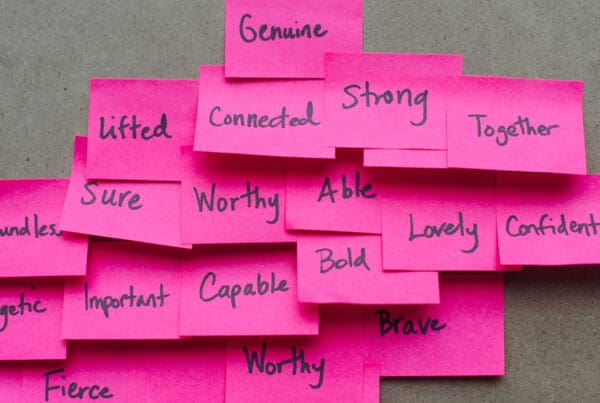When the COVID-19 pandemic first hit, teams across UW Medicine jumped into gear to flatten the curve and keep the community safe. Now, two-thirds of the way through the year, the adrenaline is wearing off and, for many, energy reserves are wearing down.
“In the next phase, we need to collectively pay attention to where people are at emotionally and with their well-being,” says Anne Browning, PhD, founding director of the UW Resilience Lab and assistant dean for well-being at the University of Washington School of Medicine.
For Browning, it’s important to pay attention to your well-being several months after a crisis because this is when the initial shock wears off and you may start to experience lower lows.
During this time, it’s common to feel overwhelmed by or disinterested in work.
Some good news? Even in stressful times, there are ways you can help fight burnout, promote your well-being and feel more resilient.
How do you know if you’re experiencing burnout?
Burnout can look different for different people.
For some, burnout might look like disengaging from work or not being able to emotionally connect with a patient. For others, it may mean having a shorter fuse than normal and snapping at a co-worker or friend.
Burnout occurs when you feel like you don’t have control over your situation or the resources you need to cope with the demands of work and life, Browning says.
When you’re burned out, macro stressors like the pandemic or a financial crisis can make micro stressors in your life feel bigger and less manageable.
“Just trying to get your laundry folded becomes an epic task,” Browning says.
If you’re feeling exhausted and are struggling to find enjoyment in your work or personal life, chances are you’re experiencing burnout.
What can you do to be more resilient?
So, you fit the burned-out profile. Now what?
Try these methods to build up your resilience and keep yourself healthy and well.
Cultivate connection
“When we think about what is key to helping experience resilience, it’s cultivating relationships and connections,” Browning says.
Especially with physical distancing measures and travel restrictions, it can be easy to go long stretches without checking in with a loved one. Working from home can also make it easier for work to bleed into time that you would previously spend with family or friends.
But now more than ever, connecting with your community is important.
Spending quality time with others, via video chat or in person, not only means you get to see a friendly face, but it also boosts your support system, gives you an outside perspective and helps you break through that feeling of being stuck.
Shift your perspective
Throughout your day, try to pay attention to things that you are grateful for at work and in your community.
“From a neurosciences perspective, you can shift the way your brain responds by getting out of a cycle of rumination on negative thoughts and feelings,” Browning says.
Whether it’s that first sip of coffee, the beautiful Seattle summer weather or cuddling your dog at the end of the day, noticing the small, positive moments can make a big difference.
Find a purpose
For some, in the midst of this pandemic, their sense of purpose may be greater than ever.
But for others, especially those who get to work from home, it can be hard to remember that staying at home is making a huge difference in the community.
If you notice yourself starting to fall into a slump, try to reconnect with why you do the work you do.
This can be on a large scale, like aiding the health of the community, or a small scale, like making your co-workers’ day a little easier — anything that injects meaning into your work and day will help you feel more energized and engaged.
Take care of yourself
The more you are able to take care of yourself and your body, the better you will be able to experience resilience.
Make sure you are getting some movement, eating fruits and vegetables, drinking plenty of water and doing your best to get enough sleep each night.
Browning also recommends taking a break from electronics — including the 24/7 news cycle — and allowing yourself a chance to unplug.
“We are so lucky to live in the Pacific Northwest, where many of us can leave the place we are living, stay 6 feet away from others and get into green space,” she says.
The bottom line
We’ve all been through a lot this year, and it’s important to take some time to check in with yourself and others.
Work on giving yourself some grace in moments when you feel unmotivated and try to remember that some days will be more productive than others.
We still have a ways to go to in fighting this pandemic, but prioritizing well-being will help see us through.


